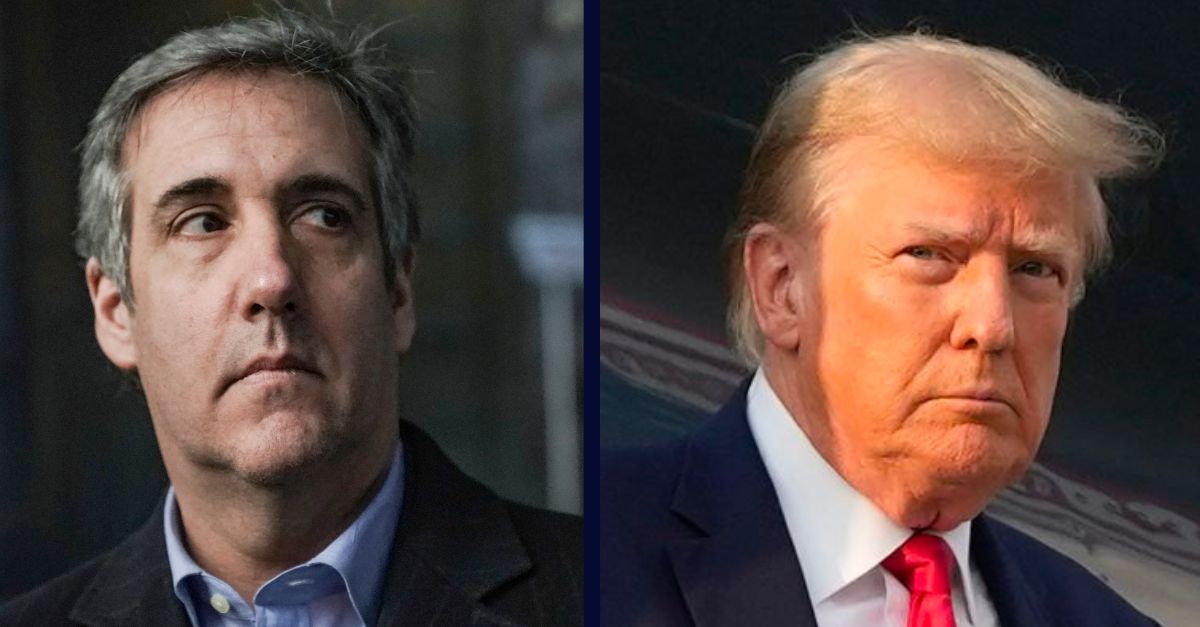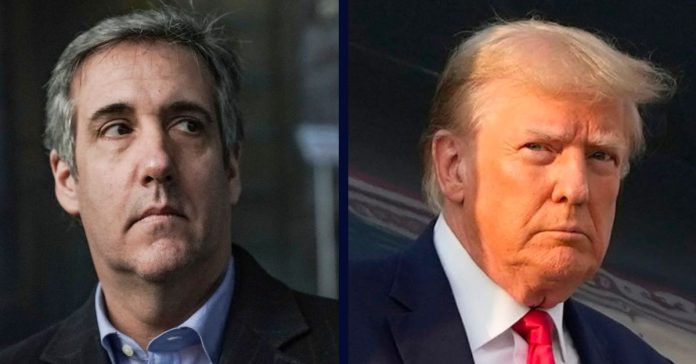
Michael Cohen (AP Photo/Bebeto Matthews, File), former President Donald Trump (AP Photo/Alex Brandon, File)
Donald Trump’s former fixer Michael Cohen lost his appeal Tuesday of the dismissal of a civil rights lawsuit he filed against the former president, former U.S. Attorney General Bill Barr, and other DOJ officials for being thrown into solitary confinement for 16 days as he hawked a tell-all book over the summer of 2020.
In November 2022, U.S. District Judge Lewis Liman, a Trump appointee, found that existing U.S. Supreme Court precedent was fatal to Cohen’s claims for damages under Bivens of Fourth Amendment and Eighth Amendment violations allegedly committed by Trump and former U.S. Attorney General Bill Barr by sending the convicted felon and disbarred attorney to jail out of retaliation over the exercise of his First Amendment rights through the memoir “Disloyal.” That dismissal came more than a year after another federal judge ordered Cohen’s release from jail, seeing merit in claims that the former fixer was removed from furlough and home confinement and placed in solitary confinement for a “retaliatory” purpose in violation of the First Amendment.
Despite this, Liman was of the view that Supreme Court precedents “squarely and unequivocally foreclose the Bivens claims” in Cohen’s civil rights lawsuit, even as the judge lamented the “profound violence this holding does to Cohen’s constitutional rights.”
“Cohen’s complaint alleges an egregious violation of constitutional rights by the executive branch — nothing short of the use of executive power to lock up the President’s political enemies for speaking critically of him. The Supreme Court’s precedents ensure that there is at best a partial remedy for the abuse of power and violation of rights against the perpetrators of those wrongs,” Liman wrote.
The U.S. Court of Appeals for the Second Circuit’s three-judge panel — Senior U.S. Circuit Judge Barrington Parker, a George W. Bush appointee, U.S. Circuit Judge Myrna Perez, a Joe Biden appointee, and U.S. Circuit Judge Sarah Merriam, also a Biden appointee — on Tuesday agreed with the dismissal, writing “we cannot infer a Bivens cause of action for Cohen’s claims because there is reason to hesitate before extending Bivens to this new context.”
“Cohen’s Fourth Amendment claim involves ‘new categor[ies] of defendants’ that were not contemplated in Bivens,” the panel said. “The same holds true for Cohen’s Eighth Amendment claim against the defendants who are not prison officials.”
Emphasizing that Cohen’s case “involves a new context,” the panel alluded to “significant separation-of-powers concerns” without actually addressing those concerns — since Cohen did, in fact, successfully manage to get out of jail (citations removed for ease of reading):
Because this case involves a new context, we must determine whether any special factors are present. We note that there are significant separation-of-powers concerns with extending Bivens to Cohen’s claims against many of the instant categories of defendants, which by itself is reason to counsel hesitation. We need not address those concerns, however, because Cohen’s attempt to extend Bivens fails for an independent and far simpler reason. Not only did Cohen have available to him “other alternative forms of judicial relief,” he was successful in pursuing other forms of judicial relief. Indeed, Cohen filed a petition for a writ of habeas corpus and a motion for an emergency TRO, and the district court issued an injunction within a matter of days releasing Cohen from imprisonment to home confinement. Under the circumstances presented here, a successful petition for habeas relief is sufficient to foreclose Cohen’s Bivens claims.
In conclusion, the judges noted that the panel “considered all of Cohen’s remaining arguments and find them to be without merit.”
Read the Second Circuit’s summary order here.
Have a tip we should know? [email protected]

